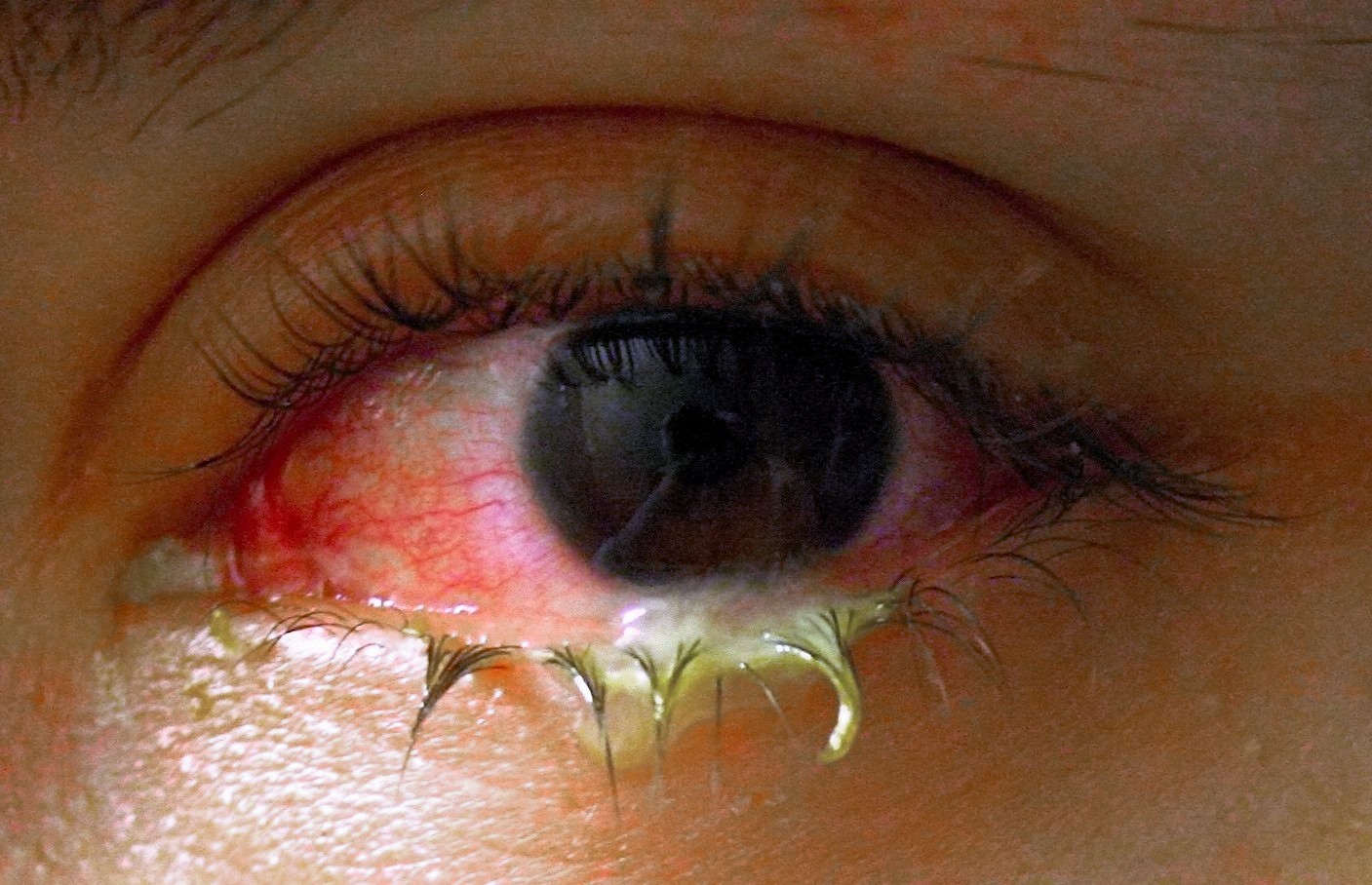![]()
Conjunctivitis, commonly known as “eye flu,” is an eye condition that affects the conjunctiva, the thin clear tissue covering the white part of the eye and lining the inner surface of the eyelids. This condition can be caused by various factors, including viruses, bacteria, allergens, and irritants. In this article, we’ll explore the symptoms, prevention measures, and home care tips for conjunctivitis.
Table of Contents
- Introduction
- Types of Conjunctivitis
- Viral Conjunctivitis
- Bacterial Conjunctivitis
- Allergic Conjunctivitis
- Irritant Conjunctivitis
- Common Symptoms
- Redness and Irritation
- Excessive Tearing
- Discharge
- Itching
- Light Sensitivity
- How Conjunctivitis Spreads
- Direct Contact
- Indirect Contact
- Prevention Strategies
- Hand Hygiene
- Avoiding Eye Rubbing
- Personal Items
- Contact Lens Hygiene
- Allergen Avoidance
- Home Care Remedies
- Warm Compresses
- Artificial Tears
- Lubricating Ointments
- Cold Compresses
- Clean Washcloths
- Avoiding Makeup
- Removing Contact Lenses
- When to Seek Medical Attention
- FAQs
- Can conjunctivitis be serious?
- Is viral conjunctivitis contagious?
- Can I wear contact lenses with conjunctivitis?
- How long does it take to recover from conjunctivitis?
- Is it safe to treat conjunctivitis at home?
Types of Conjunctivitis
There are several types of conjunctivitis, each with distinct causes and characteristics. Viral conjunctivitis is often caused by the same viruses responsible for the common cold and is highly contagious. Bacterial conjunctivitis results from bacteria entering the eye and can cause significant discomfort. Allergic conjunctivitis is triggered by allergens like pollen or pet dander, while irritant conjunctivitis occurs due to exposure to irritants like smoke or chemicals.
Common Symptoms
The symptoms of conjunctivitis can vary depending on the cause, but common signs include redness and irritation of the eyes, excessive tearing, eye discharge (may be clear, white, yellow, or green), itching, and sensitivity to light. These symptoms can make daily activities uncomfortable and affect overall vision quality.
How Conjunctivitis Spreads
Conjunctivitis is highly contagious and can spread through direct and indirect contact. Direct contact involves touching an infected person’s eye secretions or surfaces they’ve touched, while indirect contact occurs when you come into contact with objects or surfaces that have been contaminated.
Prevention Strategies
Preventing conjunctivitis involves adopting good hygiene practices. Regularly washing your hands, avoiding touching your eyes with unwashed hands, refraining from sharing personal items like towels and makeup, and maintaining proper contact lens hygiene can significantly reduce the risk of contracting or spreading conjunctivitis. If you suffer from allergic conjunctivitis, identifying and avoiding allergens can help prevent flare-ups.
Home Care Remedies
Mild cases of conjunctivitis can often be managed at home with simple remedies. Applying warm compresses to the eyes can help relieve discomfort and reduce crusting. Over-the-counter artificial tears can lubricate the eyes and alleviate dryness. In cases where the eyes are particularly irritated, lubricating ointments can provide longer-lasting relief. Cold compresses and clean washcloths can be used to soothe inflammation. During conjunctivitis, it’s advisable to avoid wearing makeup and contact lenses to prevent worsening the condition.
When to Seek Medical Attention
While home care measures are effective for mild cases, it’s essential to seek medical attention if symptoms worsen or if you experience severe pain, changes in vision, or increased sensitivity to light. Professional evaluation can determine the exact cause of conjunctivitis and provide appropriate treatment.
FAQs
1. Can conjunctivitis be serious? Yes, while most cases are mild and resolve on their own, certain types of conjunctivitis can lead to more severe complications if left untreated. It’s important to consult a healthcare provider if you suspect conjunctivitis.
2. Is viral conjunctivitis contagious? Absolutely. Viral conjunctivitis is highly contagious and can spread easily through direct or indirect contact with the infected person’s eye secretions.
3. Can I wear contact lenses with conjunctivitis? It’s recommended to avoid wearing contact lenses until the infection clears up. Contacts can exacerbate the irritation and may slow down the healing process.
4. How long does it take to recover from conjunctivitis? The recovery time depends on the type of conjunctivitis and how well you follow recommended treatments. Viral conjunctivitis may take up to two to three weeks to resolve.
5. Is it safe to treat conjunctivitis at home? Mild cases of conjunctivitis can be managed at home with proper hygiene and home care remedies. However, it’s advisable to seek medical attention if the symptoms worsen or if you’re unsure about the cause of your conjunctivitis.
In conclusion, conjunctivitis, or eye flu, is a common eye condition that can cause discomfort and affect daily life. By practicing good hygiene, taking preventive measures, and seeking medical attention when necessary, you can effectively manage and recover from conjunctivitis. Remember, your eye health is vital, and proper care ensures a swift and comfortable recovery.
